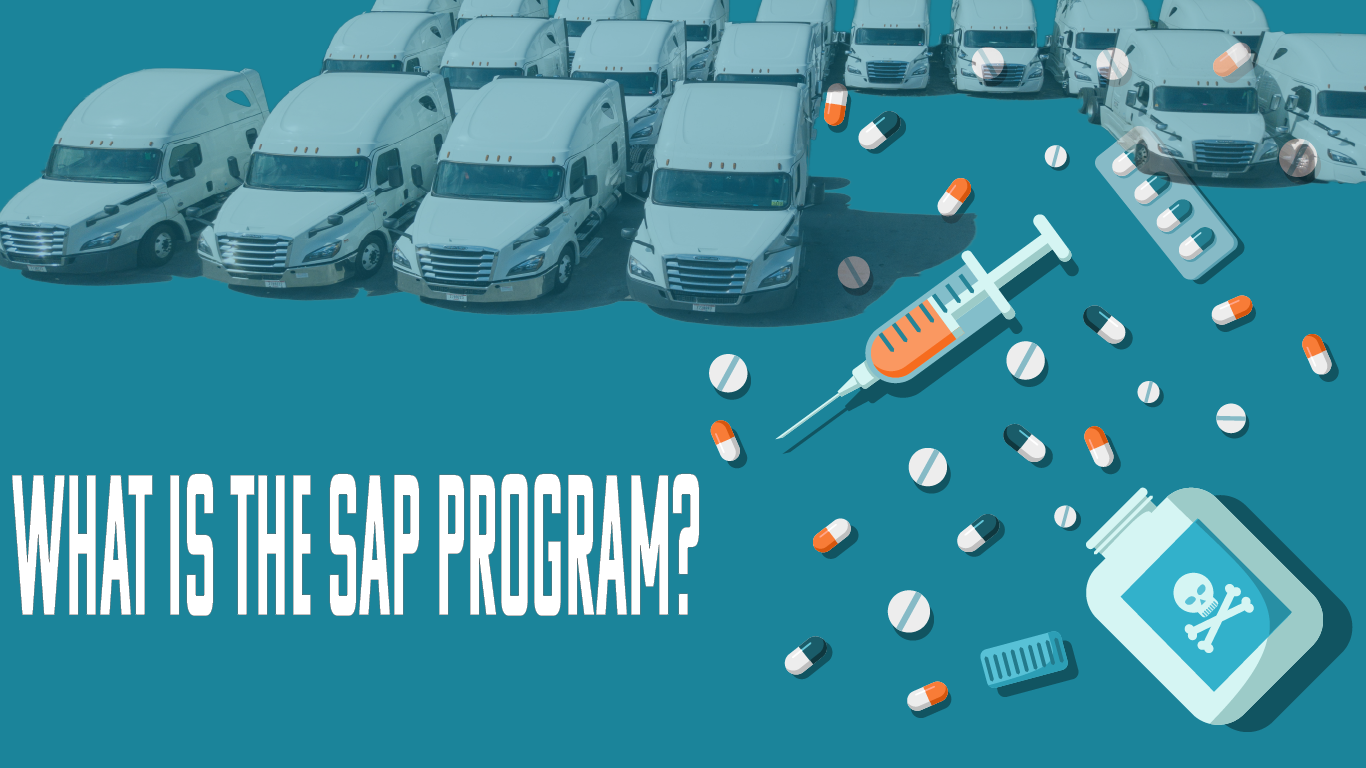WRITTEN BY: BLOOM SERVICES

The Substance Abuse Professional (SAP) program is a service required by the Department of Transportation (DOT) for truck drivers who have violated the DOT’s drug and alcohol regulations. When a truck driver has a positive drug or alcohol test, refuses to take a drug or alcohol test, or violates any other drug and alcohol regulation, they may be required to participate in the SAP program.
How does the SAP Program Work?
The SAP program is designed to help truck drivers address any substance abuse issues and return to a safe and healthy lifestyle. It involves an evaluation by a SAP, who is a professional trained in substance abuse disorders and the DOT’s drug and alcohol regulations. The SAP will conduct a face-to-face evaluation with the driver and review their medical history, work history, and any other relevant information.
SAP Evaluation
Based on the evaluation, the SAP will determine the appropriate level of treatment and education for the driver. This may include a referral to an education program, a treatment program, or both. SAP will also develop a treatment and education plan for the driver, which may include follow-up evaluations and ongoing monitoring to ensure that the driver is following the plan and making progress.
If the driver does not follow the treatment plan or fails to comply with the SAP program requirements, they may be removed from the program and may face further disciplinary action, including loss of their commercial driver’s license (CDL) and their ability to work as a truck driver.
Consequences of Violations
It is important for truck drivers to be aware of the SAP program and the potential consequences of violating the DOT’s drug and alcohol regulations. Truck drivers who are struggling with substance abuse issues are encouraged to seek help and participate in the SAP program to get the treatment and support they need to overcome their issues and return to a healthy lifestyle.
How do Drivers get Placed on SAP?
Truck drivers may be placed on the Substance Abuse Professional (SAP) program for a variety of reasons, including:
- Positive drug or alcohol test: If a truck driver has a positive drug or alcohol test, they may be required to participate in the SAP program.
- Refusal to take a drug or alcohol test: If a truck driver refuses to take a required drug or alcohol test, they may be required to participate in the SAP program.
- Violation of drug and alcohol regulations: Truck drivers who violate any of the DOT’s drug and alcohol regulations, such as operating a commercial vehicle while under the influence of drugs or alcohol, may be required to participate in the SAP program.
- Previous SAP program participation: Truck drivers who have previously participated in the SAP program and have not successfully completed it may be required to participate again.
- Other substance abuse issues: Truck drivers who have substance abuse issues that are not related to a violation of the DOT’s drug and alcohol regulations may still be required to participate in the SAP program to receive treatment and support.
Some of the Reasons you Should AVOID being Placed on SAP.
There are several reasons why truck drivers should try to avoid being placed on the Substance Abuse Professional (SAP) program:
- Loss of commercial driver’s license (CDL): If a truck driver is placed on the SAP program, they may lose their CDL while they are participating in the program. This can make it difficult or impossible for them to work as a truck driver until they have successfully completed the program.
- Difficulty finding employment: Trucking companies may be hesitant to hire drivers who have been placed on the SAP program, as it can be seen as a red flag for potential substance abuse issues.
- Treatment and education costs: Participating in the SAP program can be costly, as the driver will be responsible for paying for any treatment and education programs they are required to attend.
- Time and effort required: The SAP program can be time-consuming and require a significant amount of effort, as it involves regular evaluations, treatment, and education.
- Potential for further disciplinary action: If a truck driver does not follow the treatment plan or fails to comply with the SAP program requirements, they may be removed from the program and may face further disciplinary action, including loss of their CDL and their ability to work as a truck driver.
It is important for truck drivers to be aware of the SAP program and the potential consequences of violating the DOT’s drug and alcohol regulations. They should strive to maintain a healthy and sober lifestyle to avoid being placed on the SAP program.
Bloom Services, Inc
Here at Bloom, we do not bring on people that are currently in the SAP program or recently completed the SAP program. I may consider people two years after completion of SAP, but no earlier. It is up to drivers to take personal responsibility for their actions and to be professional. There is no real acceptable reason for a professional trucker to be placed on SAP.
At Bloom we offer newer trucks, and cover trailer and cargo liability. We don’t pay base on mileage, rather we pay 82% gross load. This is beneficial for strong drivers with a good work ethic, you will earn based on the actual load rather than mere miles.
Our drivers average $3,000 plus a week take home pay after all expenses, like fuel, truck rent, etc. If you have Grit, and the endurance to consistently deliver loads and run for at least three weeks at a time, you can take home nearly $150K a year. If you are interested, apply now.



office & Parking depot
5120 Belmont Rd Unit K, Downers Grove, IL 60515, USA
Hours of operation
Mon - Sun: 7am-5pm
